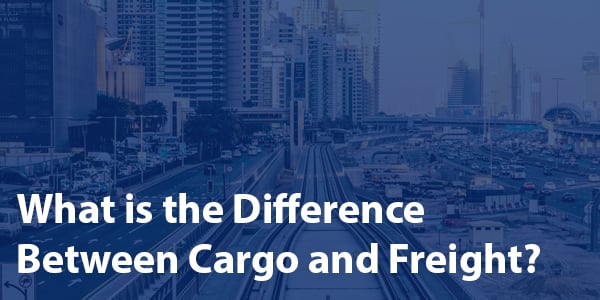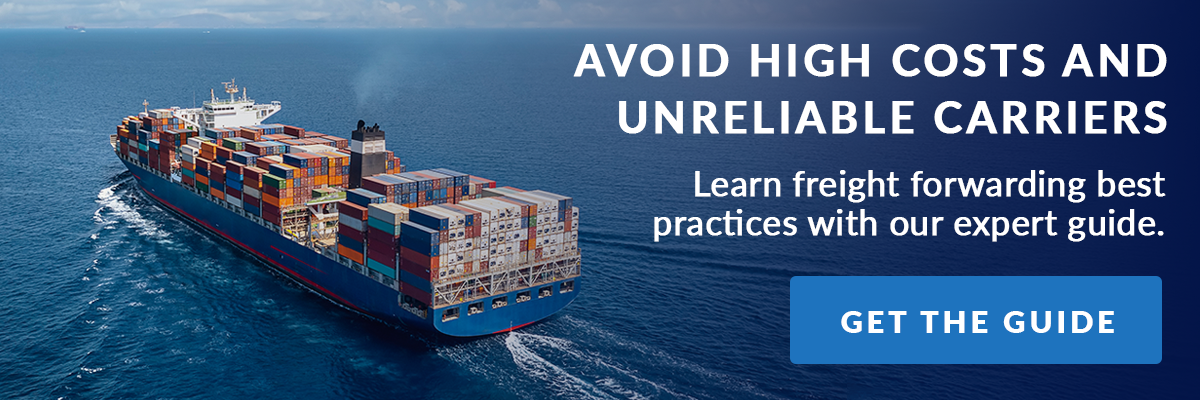
The words cargo and freight are similar, but even though they share a few things in common, the meanings are quite different.
For people who are just getting into the import-export game, the difference between these terms is often blurred. Understanding the two terms and the different contexts they’re used in will help eliminate any possibilities for confusion when talking to industry professionals about your shipments.
This short article will clarify the differences between the two, exploring the traditional definitions, contemporary usages, and where the lines blur.
The Traditional Difference Between Cargo & Freight
In a traditional sense, the appropriate use of the terms cargo and freight depends on the vehicle carrying the goods in question.
When we refer to air freight, we don’t call the aircraft freight planes, we refer to them as cargo planes. The same goes for ocean-going vessels it’s not a freight ship, but a cargo ship.
Conversely, trains carrying goods across the land are considered freight trains; you would rarely hear someone refer to one as a ‘cargo train.’ Long-haul trailers loaded with products are generally referred to as freight trucks.
So, traditionally speaking, ‘freight’ is products or goods moved overland via truck or train, whereas ‘cargo’ refers to goods moved overseas via ocean carriers or through air providers.
Still, even using traditional or contemporary definitions, the two terms share a few things in common. Both freight and cargo are used to communicate the transportation of products or goods, and they’re used almost exclusively in reference to commercial items.
One interesting exception to this rule is mail. The accepted term for mail – whether bundles of letters and correspondence or packages and parcels – is cargo. Mail is never referred to as freight, whether it’s transported by ship, plane, train, or truck.
The Contemporary Difference Between Cargo and Freight
When I think of cargo as a logistics professional, I’m thinking about the actual goods being transported. It is the contents of the container, plane, or truck. There isn’t a monetary value attached to the term. We’re talking about the transported goods only.
With freight, I’m usually thinking about the transportation of goods. I’m thinking ‘freight-payable’ and putting a dollar amount to moving the cargo. This is often where the confusion lies. Because the word ‘freight’ is the accepted term for the payment of transport of goods.
The word freight can describe any number of things:
- The product or goods itself
- Goods moved by any method
- The money charged
- The amount payable
Although freight pertains to land transport it’s also an acceptable term for cargo moved by truck, train, plane, or cargo ship. However, cargo can only be called freight if it’s used in reference to the cargo itself and the transportation cost or payment rolled into one, which is where the lines blur.
The line differentiating cargo and freight is blurring even more, as the two terms are used interchangeably more today. The fact that more industry professionals use the terms interchangeably certainly doesn’t help with clarity. However, logistics specialists and international freight forwarders are still more likely to stick to traditional usage.
Related Content: How to Understand Ocean Freight Destination Charges
In conclusion, cargo is traditionally commercial goods shipped by sea or plane, and mail is always cargo. Freight is cargo moved overland in trucks or trains, and often refers to the financial aspect of the transportation of goods. Understanding the differences between the terms will help you avoid any confusion while talking to your freight forwarder or 3PL provider, and reduce the risk of possible error due to miscommunication.




